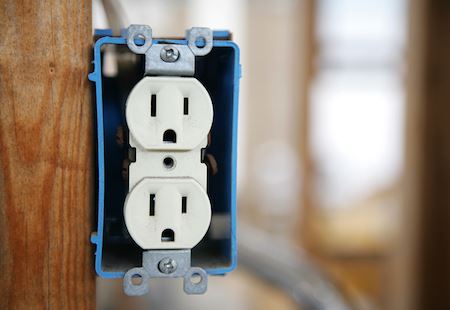How old is your home? Statistics show that the average home in the US was built in 1974. That means in most cities across America, Atlanta included, you can easily walk into any community and find homes built more than a half-century ago.
Think building codes have changed a bit since then?
If you’ve been carrying on with your daily life, never stopping to think about what is happening behind your walls, maybe it’s time. Statistics also show that 7 children are treated in the hospital for electrical shock or burn injuries caused by playing with a wall outlet each day.
Your electrical wiring is a bit different than other systems in your home. You can’t see it. You don’t touch it. Instead, you only notice if it’s working or not by plugging something into the wall. If your light goes on and off, your wiring is working.
Yet like everything, wiring is only meant to last so long. It needs to be updated too, especially if your home is a half-century old.
Why consider updating your wiring
The most obvious reason to consider updating your wiring is for safety. Like everything, our knowledge has grown over time. In the 60s and 70s, for example, high copper prices led to homebuilders of the time to select aluminum wiring instead. The problem is exposed aluminum oxidizes faster than copper, building heat and increasing fire risks. A report from the Consumer Product Safety Commission hound that homes with aluminum wiring can be up to 55 times more likely to sustain fire damage than homes with copper wiring.
Safety is probably the best reason to consider upgrading now. But there’s another reason too.
Today’s homes use more power than ever. If you have an older home, you’ve probably been frustrated on more than one occasion wanting an outlet in a place where none exists. We use more electricity than ever before to keep our appliances running, and to boot up all of the technology we use every day. Old electrical wiring just isn’t up for the job.
Don’t wait until there’s a problem with your electrical wiring
As a homeowner, you might be used to living with the “wait and see” approach to home maintenance. It works in many cases. If the toilet flushes without a problem, why work on it? If your dishwasher washes fine, why upgrade it?
According to the National Fire Prevention Association, faulty wiring is the leading cause of fire in a residential setting. And the older your wiring is, the more potential problems it’s causing. Even if you can’t see it.
Make this the year you upgrade your wiring, to keep your family safe all year long.

